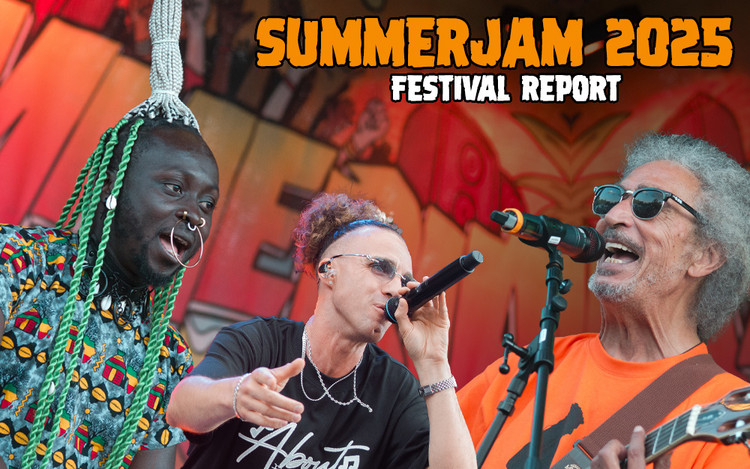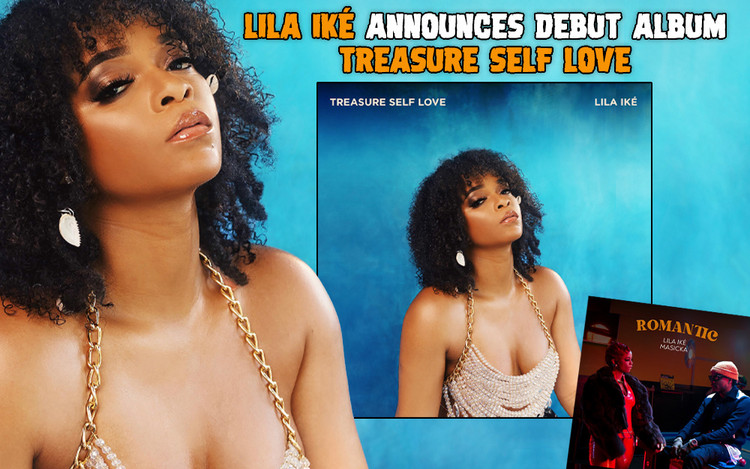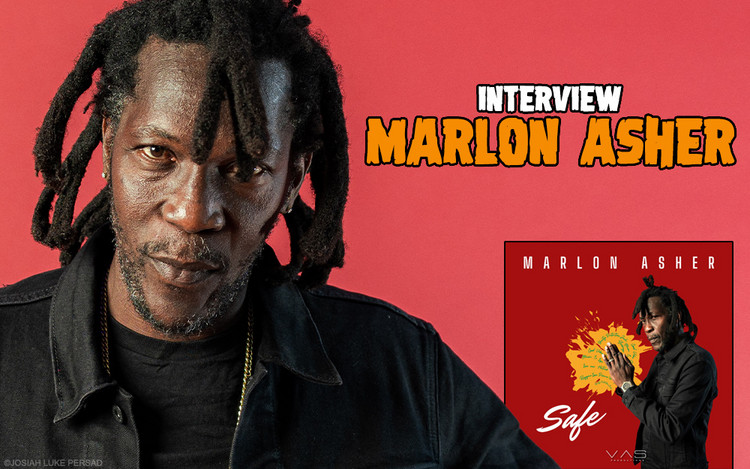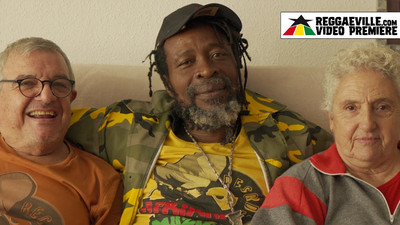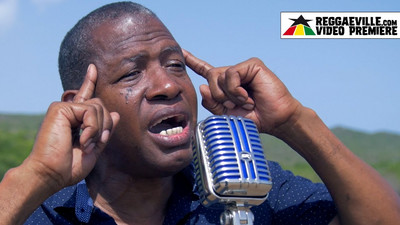Talisman ADD
Interview with Talisman
10/03/2013 by Angus Taylor
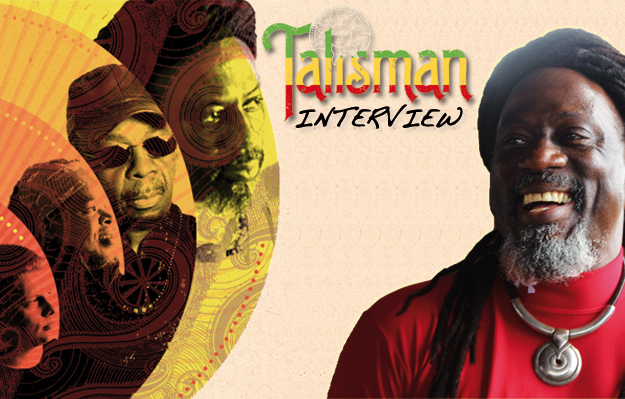
Bristol’s Talisman reformed in 2011 and have just released third studio album I-Surrection - their first since 1990.
Produced by Rootikal’s Dave Hill for Mike Darby’s Sugar Shack Records it harks back to the sounds of the 1970s when they first started.
After a chance encounter with the band backstage after Talisman’s performance at England’s One Love Festival in August, Angus Taylor improvised this interview with guitarist Dehvan Othieno and bassist Dennison Joseph.
How did Talisman get started?
Dennison Joseph: Good question. Well, Talisman came off another band that was going on in the early 70s called the Panthers.
Dehvan Othieno: Actually two of them: the Cavaliers and the Panthers. We were both in different bands. Both bands broke up and the two of us came together and became Talisman.
Dennison Joseph: We joined together and that’s how it started.
Who coming out of Jamaica and England inspired you at the time?
Dehvan Othieno: Gregory Issacs, Dennis Brown, I’d say obviously Bob Marley… but the Wailers. Because the most important thing the Wailers did for reggae was to take it over that barrier from what they call strictly roots and introduced rock guitar and all those other things which then made it easier, more acceptable to the mass media. Between him, Chris Blackwell and the Wailers, they gave reggae that expansion. For the youths in England who didn’t really have that grounding in the roots in Jamaica, that was very big for us. 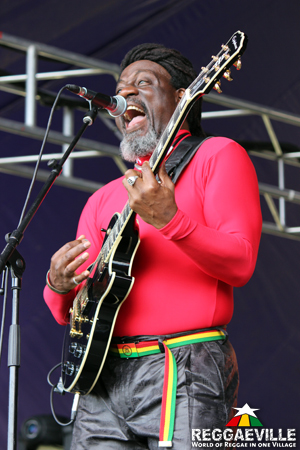 Yeah, to add more songwriting rather than just building rhythms. Who outside of reggae music inspired you musically?
Yeah, to add more songwriting rather than just building rhythms. Who outside of reggae music inspired you musically?
Dehvan Othieno: James Brown… most of the black American R&B because they were the ones who were actually doing conscious music at the time. Around about the 70s those were the only people who were doing what we call conscious music; spiritual music that talked about being oppressed, that talked about being poor, that talked about being kept down by governments and corporate societies and things like that, so we looked to them. The same way they influenced from America to Jamaica, the same influence came to the UK as well.
Dennison, who inspired you to pick up the bass?
Dennison Joseph: That’s a big question for me. Just finding myself. Finding myself and what my ancestors used to do, because coming from Africa, the music creativity is inside of us. Then one day you’re just inspired to want to play music, to want to be artistic, to want to express yourself, and then you see other people doing the same thing. So for me, I just wanted a chance to be on stage and to do something for when I get to 70 years old rather than doing the gardening and stuff like that. So I think inspiration is a big question, so it needs a big answer: to be inspired. It’s already inherent inside of you, it’s just for you to pluck it out and then hopefully you have an effect on people.
Were you listening to like Familyman, Robbie Shakespeare…?
Dennison Joseph: I listened to all sorts of things. I was listening to country, I was listening to Pat Boone… I was born in the 50s, 1952, so on the radio in the Caribbean I was listening to Pat Boone and all the country and western. I loved the harmonies. This again had an influence on me to pick up music.
A lot of people don’t understand how important that country music is and how the intersection between country and western, reggae and soul works. With country being played on Jamaican radio but also the West African influences in country.
Dennison Joseph: Yeah, yeah, yeah.
Dehvan Othieno: Yeah, same sort of pain, you know?
And then there are soul labels like Stax crossing over into the country, using musicians who played country and of course, southern soul labels like Stax and Hi Records intersected with reggae as well.
Dennison Joseph: And the Caribbean being Americanised as well. Florida, so close, which is part of the Caribbean as well, a lot of music used to drift over. So you didn’t have any choice but to listen and to soak it until you started doing your own thing and developing your own idea. 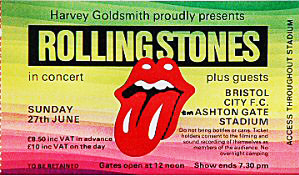 You played to rock audiences a lot – you even supported the Rolling Stones once?
You played to rock audiences a lot – you even supported the Rolling Stones once?
Dennison Joseph: 1982, Bristol City football ground.
Dehvan Othieno: Yes, Bristol City football ground! (laughs)
Dennison Joseph: Our claim to fame! It was an opportunistic time. I think Black Roots turned them down because of a certain ‘fee’. We just said yes, we would do it and next thing we’re on this stage a mile long and that was it.
Dehvan Othieno: Our first and only stadium gig. It was a big time for us. The main thing that I always tell people about that is Mick Jagger is not the ‘star’, not the toffee-nosed person that you think he is. He was really cool, he came and talked to the band, he made sure that we had everything that we needed, as opposed to the rest of the other Rolling Stones, you know? He was the only one who came; he sat in the dressing room and chatted with us for a while. He’s really down to earth. I’ve still got the lip with the tongue and all the autographs!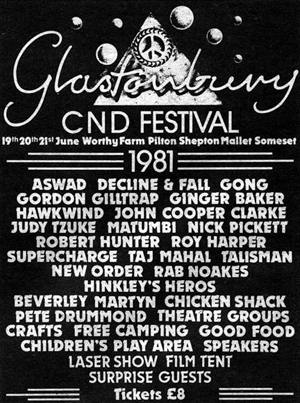 What was your musical high point during that period of time?
What was your musical high point during that period of time?
Dennison Joseph: It must have been Glastonbury. Playing Glastonbury and being exposed to about 30,000 people.
Dehvan Othieno: Main stage at Glastonbury!
Dennison Joseph: At the time we had to beg to get onto the stage. It was 1981 or ’82. But before all of that it used to be a farmhouse at the top of the field and we used to play with the likes of John Martyn and a lot of other musicians until it changed into that, so yes, I think that that was our sort of catalyst to who we are now.
Why did Talisman go off the road? Why did you stop?
Dehvan Othieno: I think it was a combination of things. We were just beginning to have families and also at the same time directional, personal differences.
Dennison Joseph: Development.
Dehvan Othieno: Yeah. About: Where do we go from here? What do we do? An all-black reggae band? Do we have white guys in the band? Do we play roots reggae? Different people want different things. I think the most important thing was that there wasn’t enough money coming in. There were six of us in the band and it wasn’t enough money to feed all of us. So one by one people had to go and get other things to do and it started the disruption of the band.
Dennison Joseph: For me it was a personal development. Some things start and they go so far, like with everything. Then you find yourself and then maybe you find your true purpose, so this is the reason why we’re back together. We didn’t even bring ourselves back, it was a so-called fan who brought the band back together.
Tell me about that. How did it happen?
Dennison Joseph: Mike Darby runs Sugar Shack Records and he was a fan. He spoke to us about five or six years ago: “Can I do this, that, and that with you? With your music? Put it on iTunes? There’s no money in it”. So we said “Yes, ok”. Two years later he said “How about getting back together?” So three years ago this is what we did. It had to happen that way.
Dehvan Othieno: That was a connection with Bristol Archive record label and he was just putting out old stuff and he said “Just go and support it with one gig” (laughs). Three years later, here we are.
Black Roots is back, you’re back. There’s also a similar level of dissatisfaction with the government and things like this happening. Is there something happening right now that’s bringing all these things out?
Dennison Joseph: I don’t feel that. I think now is a good time for reggae music. Reggae music was taking a dive. We played in Bangor a few weeks ago at the Sunrise festival in Trowbridge and for the first time all the venues were reggae bands; black, white, you know? White faces, young, old, grandmothers and little children. So I don’t understand whatever bickering there is. There’s always going to be bickering. I just think now is a good time for reggae to spread the message of reggae music all over Europe. Spain, Italy…
Dehvan Othieno: I think in addition to that the environment and the things that are happening at the moment are actually spurring because reggae is a conscious, rebel music. I don’t think it’s an accident that at the time we were at our heights the Conservatives were in power, there were 3 million people on the dole, there was all this thing going on about the individual me, me, me. Now the Conservatives are back in power, David Cameron is at the helm, there’s 2.9 million people on the dole and here we are in a recession and they’re telling us it’s going to get harder and harder. You work it out for yourselves.
So as your song says – Nothing Change.
Dehvan Othieno: (laughs) Nothing’s changed – yeah!
Dennison Joseph: For real.
So tell me about your new album.
Dehvan Othieno: It’s called I-Surrection, it’s coming out on Sugar Shack Records. It’s a bunch of new songs. I think maybe it’s going to take us in a different direction. I don’t know about the response of the audience, our fans and all that. But we enjoyed making it. It’s going to be our first album for 25 years, so we’re looking forward to promoting it on the road. 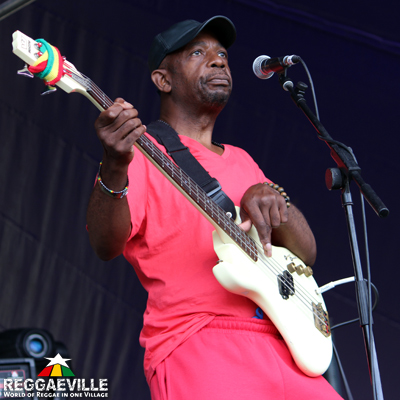 Final question: we’re at One Love Festival. What does One Love mean to you as a concept?
Final question: we’re at One Love Festival. What does One Love mean to you as a concept?
Dennison Joseph: As a concept: universal love.
Dehvan Othieno: Encompassing everybody, everything, every person regardless of race, creed or colour.
Dennison Joseph: It’s a kind of consciousness that we have. It’s like we’ve lost that, people are running after different things, being malicious to one another. Basically people are just missing the point. Sometimes even the words “One love”; people will say it “One love, one love” and tomorrow they go back to their bickering.
Dehvan Othieno: You ask them to share something with you and it’s like… it’s a lot more difficult than it sounds. It’s an aspiration. One love; it’s an aspiration. It’s like the Creator would have given us that to aspire to, to reach to. I think that anything that we can do to move up to that ideal, we’re going in the right direction.
Dennison Joseph: And people basically need help because we’re all children, and like children we need people to spread the message to give them that sort of understand because people hear things but they don’t mull it over themselves. You need so-called soothsayers, prophets, storytellers to help people, because we’re children. This is what they understand. So that concept of one-ness, one love, one consciousness: you have to tell it over and over and over again.
Is that the concept of Talisman as well?
Dennison Joseph: Yeah, man! Undoubtedly. Undoubtedly.
Dehvan Othieno: Our message, I would like to think, is universal. The kind of audiences we play to are very mixed, and I think in terms of our own support of what one love is: yes, every time.
LIVE PHOTOS BY VERONIQUE SKELSEY




